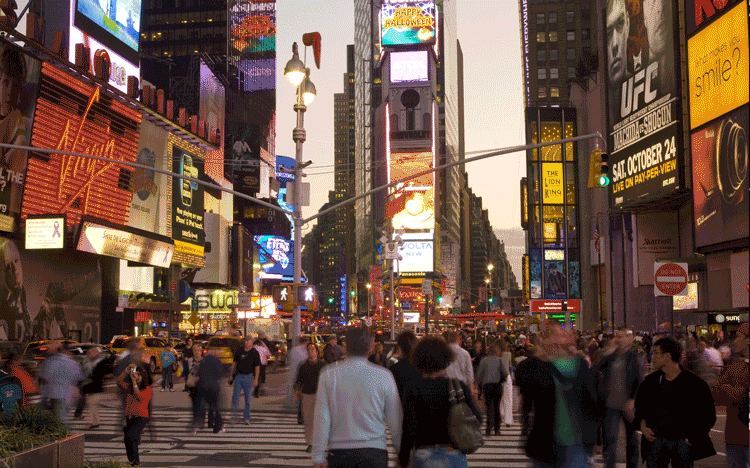Last year, travel organization Worldstrides organized experiences for 550,000 students and generated $650 million in revenue.
But it was forced to issue refunds as the pandemic canceled trips, leaving the largest accredited travel program in the U.S. $768 million in debt. Worldstrides and 22 other affiliates of parent company Lakeland Tours filed for Chapter 11 bankruptcy July 21.
With the coronavirus cutting off tourism like a tourniquet, the damage is spreading across economies — such as New York City’s — and real estate interests that rely on it.
“Any time that we are in a recession, hospitality within the real estate industry is the first one getting hit really hard,” said Yildiray Yildirim, the director of Baruch College’s Steven L. Newman Real Estate Institute.
More than 65 million tourists visited New York City last year, according to think tank Center for an Urban Future. And they opened their wallets upon arriving.
Pre-pandemic, tourists were responsible for 24 percent of credit card sales at New York City restaurants and bars and 18 percent of all Visa transactions at retail stores in the city. New York was home to 291,000 tourism jobs, more positions than the finance or tech sector contributed, the think tank reported.
Those jobs are evaporating as people avoid flying, international travelers are largely prohibited from entering the country and visitors from 34 states (and counting) are being told to quarantine after entering New York.
The hospitality industry has shrunk like ice on hot asphalt. Last month, dozens more hotels laid off staff in a bid to survive.
Other businesses relying on travel have been similarly hurt. Golden Touch Transportation of NY, a charter bus and limo service, will close at the end of September, according to a Department of Labor filing. Some 213 employees will lose their jobs. In March, Ovation Travel Group laid off 106 employees.
Even NYC & Company, the city’s official marketing and tourism partnership organization, laid off 77 in late April.
Although the airline industry received a $32 billion federal bailout and smaller businesses have used Paycheck Protection Program loans to tread water, the interconnectivity of the industry means that one company’s financial devastation can have a domino effect, according to Alexander Tiktin, a bankruptcy attorney at Davidoff Hutcher & Citron LLP
“If you have a travel agency filing for bankruptcy, unsecured creditors that are owed debts by that travel agency may have their claims wiped out, and that could have far-reaching effects,” Tiktin said. “For example, if a travel agency owes a substantial amount of money to one of its contractual partners, such as an airline, a cruise line or hotel chain, that entity that it owes money to may not be able to make any recovery.”
The result could be a chain reaction of insolvency across the industry, he said.
Some attractions have reopened, albeit at partial capacity, and are starting hyperlocal campaigns to ride out the shutdown. NYC & Company’s “All in NYC” encourages New Yorkers to eat out, shop and visit tourist spots.
Experts applaud the effort, but hesitate to say it will prevent doom.
“It’s not going to be the same. It’s not going to be enough,” Yildirim said. “But then the question is how to minimize your marginal losses.”
For retailers that benefit from travel, such as restaurants and stores, the past five months have been devastating.
Between 25 percent and 35 percent of revenue at Saks Fifth Avenue is estimated to come from its Fifth Avenue flagship, which is normally filled to the brim with tourist shoppers, according to a 2018 Center for An Urban Future report. This year Saks was forced to lay off staff.
Other tourist traps, including Neiman Marcus in Hudson Yards and Valentino on Fifth Ave, have closed permanently. Both cited the pandemic and changes in how people will shop coming out of it.
That kind of thinking is a concern for tourism experts: If the pandemic has long-term effects on how and where people travel, some businesses will not bounce back.
Even if travel eventually returns to normal, as John Gerner, the managing director of Leisure Business Advisors, expects, he noted that companies will have to justify the high costs of staying open in the city until then.
“If we are now in a situation where that high potential reward no longer seems as apparent, then people are really going to start looking at the cost of operating, and it’s going to put real pressure on them to find ways to economize on that,” Gerner said. “And if they can’t, then they’re just not going to be able to continue operating.”
Contact Sasha Jones at sasha.jones@therealdeal.com
